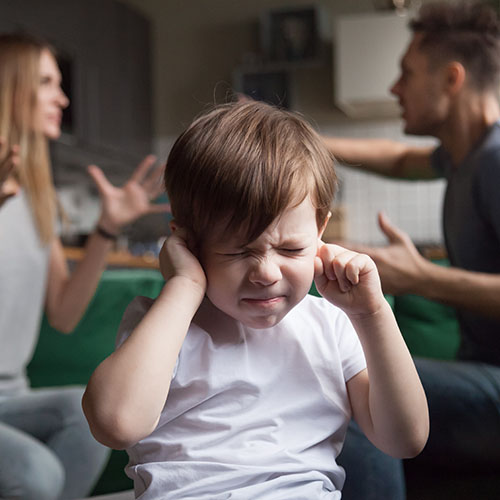
Research shows that children suffer long term impacts from witnessing domestic violence, yet growing incidences of abuse indicate that that thousands of children are being exposed to terrible acts of violence each day.
Understanding just what protects children who have witnessed abuse from becoming perpetrators or victims themselves later in life, is vital to breaking the cycle of family violence.
In a world-first study, researchers at the University of South Australia will explore the experiences of more than 200 young people (aged 18-30 years) who grew up with domestic violence, to identify what has helped them form healthy relationships as adults.
Funded by the Channel 7 Children's Research Foundation, the study will explore social contexts, support systems and environments that may have influenced positive partner relationships.
Lead researcher, UniSA's Dr Fiona Buchanan says the study will have important implications for preventative domestic violence policy and practice in Australia.
"Domestic abuse is widespread in Australia with no indication that the numbers are falling," Dr Buchanan says.
"Currently, Australian statistics show that one in six women and one in 16 men have experienced physical or sexual violence from a partner; more than 60 per cent of physical attacks on their mothers have been witnessed by children.
"When children are exposed to domestic violence, the impact can be severe and enduring. Many people assume that these children have a greater risk of becoming abusers or victims of abuse themselves, which popularises the notion of cyclical abuse.
"But we also know that many children go on from childhoods marred by domestic violence to have happy, healthy relationships as adults.
"If we are to help children to reject domestic violence, we need to know the pathways that help them choose and forge healthy relationships later. This research will help us to do this."
The most recent Australian Personal Safety Survey (PSS) indicates that one in ten men (or 896,700) and one in eight women (or 440,900) witnessed violence towards their mothers by a partner before the age of 15 years.
Globally, the World Health Organization estimates that almost one in three (30 per cent) of women worldwide have experienced either physical and/or sexual abuse from an intimate partner.
And as many as 38 per cent of all murders of women are committed by intimate partners.
During the first three months of COVID-19, the incidence of domestic violence increased, with one in three cases reported as the first time their partner had been physically violent.
With Wednesday November 25, 2020 marking the United Nations International Day for Elimination of Violence against Women, Dr Buchanan says it's a timely reminder of what is often referred to as the 'shadow pandemic'.
"We cannot afford to let domestic violence continue across generations," Dr Buchanan says.
"With the right messages and support, children exposed to domestic violence may have increased resilience later in life, and if we can identify these supports, we can help prevent the devastating transmission of abuse."






